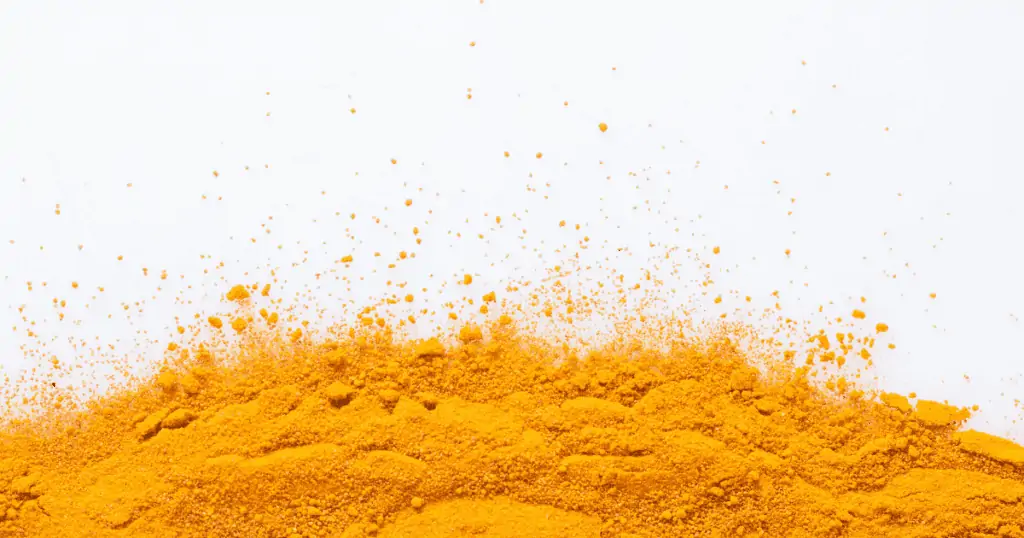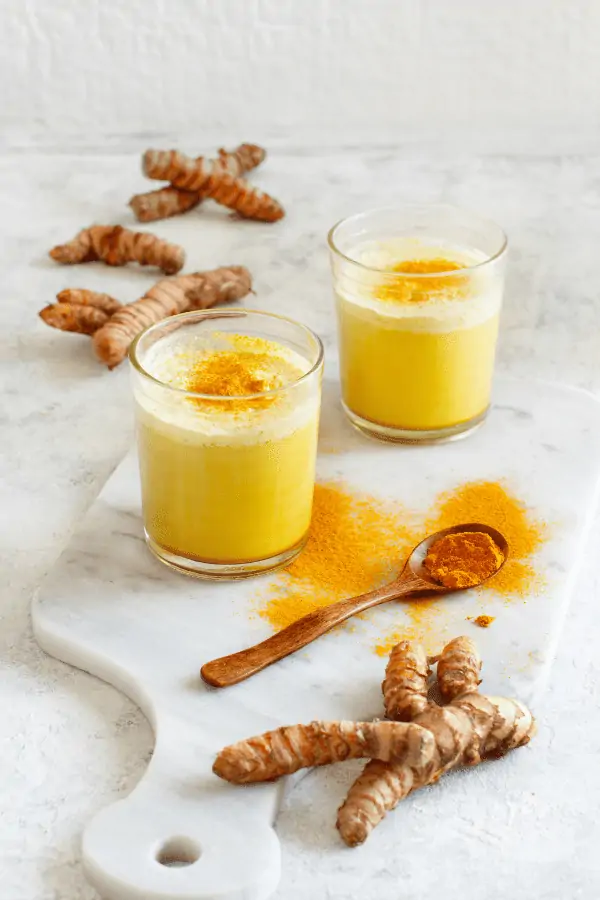Turmeric – Is it Really a Miracle Spice?

Turmeric is touted as a superfood and miracle spice. It’s delicious, and one of its active ingredients, curcumin, has been studied extensively, and is known to have antioxidant properties, anti-inflammatory properties, and many other great health benefits.
In this week’s post I’ll answer these questions:
- What is the difference between turmeric and curcumin?
- What are turmeric’s amazing health benefits?
- How can you get the most out of your turmeric?
- What should you know before running out to buy yourself curcumin supplements?
Turmeric is a rhizome that grows under the ground like ginger. It has a rich, bright orange color and is used in many foods. Native to India and Southeast Asia, turmeric is used as a dye, medicine, and a vital ingredient in traditional curries. You can find dried powdered turmeric in the spice aisle of just about any grocery store. Sometimes grocers carry the fresh rhizome too (it looks like ginger root, but smaller and darker in color).
Turmeric contains an amazing anti-inflammatory, antioxidant compound called “curcumin.” The amount of this bioactive compound is around 3-7% by weight of turmeric. Curcumin has been studied like crazy for its health benefits, and is one of my all time favourite whole food supplements. Here’s why:
Health benefits of curcumin
There are dozens of clinical studies using curcumin extract, which is more of a liquid elixir and way more concentrated than ground turmeric.
Curcumin is an anti-inflammatory compound. It fights inflammation at the molecular level. Some studies even show curcumin can work as well as certain anti-inflammatory medications but without the side effects.
Curcumin is also an antioxidant compound. It can neutralize free radicals in the body before they wreak havoc on our biomolecules. Curcumin also boosts our natural antioxidant enzymes.
These two functions of reducing inflammation and oxidation have amazing health benefits. Chronic inflammation plays a major role in so many conditions including heart disease, cancer, metabolic syndrome, dementia, mood disorders, arthritis pain, etc.
Curcumin has these other amazing functions too:
- It boosts your levels of “Brain-Derived Neurotrophic Factor” (like a natural growth hormone for your brain) which is great for brain health.
- It improves “endothelial” function” (the inner lining of your blood vessels) which is great for heart health.
- It reduces growth of cancer cells by reducing angiogenesis (growth of new blood vessels in tumors), metastasis ( the spread of cancer), and even contributes to the death of cancer cells.
So what do you think? Does turmeric deserve the title of “miracle spice”?
How to get the most out of your turmeric
Curcumin is not easily absorbed by your gut. For one thing, it’s fat soluble. But, as with any fat-soluble nutrient (like vitamins A, D, E, and K), you can increase absorption by eating it with a fat-containing meal.
The second trick to get the most out of your turmeric is eating it with pepper. Interestingly, a compound in black pepper (piperine) enhances absorption of curcumin, by a whopping 2,000%!
If you want the health benefits of curcumin, you need to get a larger dose of it than just including turmeric in the food you eat. This is where supplements come in…
I have had personal success with Thorne’s high-quality Meriva® high potency and sustained release curcumin. It is prepared with a patented technology that optimizes curcumin’s absorption which results in up to 29 times more curcumin absorption than with the use of straight curcumin.
Before you take a curcumin supplement, take caution if you:
- Are pregnant
- Are taking anti-platelet medications or blood thinners
- Have gallstones or a bile duct obstruction
- Have stomach ulcers or excess stomach acid
Always read the label before taking a new supplement.
Conclusion
Turmeric is a delicious spice, and it’s “active ingredient” curcumin is a great health-booster.
Curcumin has anti-inflammatory and antioxidant properties which are great to bust chronic inflammation. It also has other amazing health benefits, like brain- and heart-boosting properties, and even cancer-fighting properties.
Curcumin supplements can be great for your health, but they’re not for everyone. Check the label or speak with your medical care provider before taking it.
I want to know: What’s your favorite turmeric recipe? Let me know in the comments below. Here’s one of mine, a luscious “golden milk” recipe.
Recipe (turmeric): Golden Milk

Serves 2
1 cup canned coconut milk
1 cup hot water
1 ½ tsp turmeric, ground
¼ tsp cinnamon, ground
½ tsp honey
Instructions
Add all ingredients to a small saucepan. Whisk to combine.
Warm over medium heat, whisking frequently. Heat until hot, but not boiling.
Serve & enjoy!
Tip: You can substitute 2 cups of almond milk instead of the 1 cup coconut milk and 1 cup water.
References:
http://www.precisionnutrition.com/encyclopedia/food/turmeric/
https://authoritynutrition.com/top-10-evidence-based-health-benefits-of-turmeric/
https://examine.com/supplements/turmeric/
https://nutritionfacts.org/video/turmeric-curcumin-plants-vs-pills/
https://nutritionfacts.org/video/who-shouldnt-consume-curcumin-or-turmeric/

